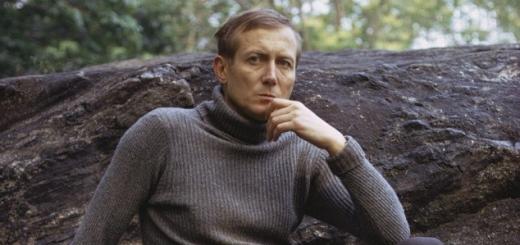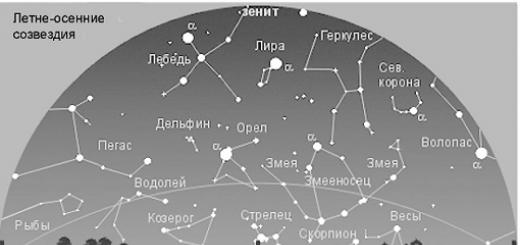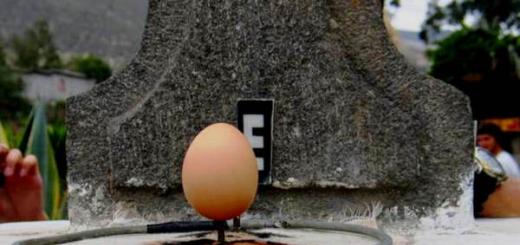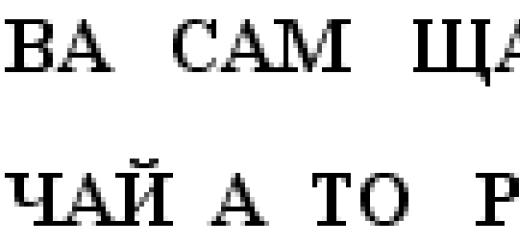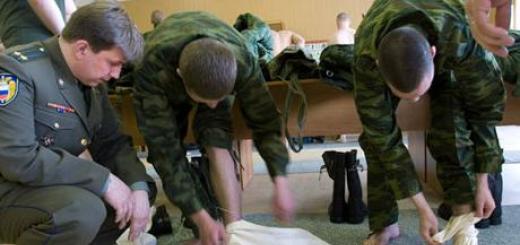Astronauts are considered perhaps the most superstitious people on the planet. According to tradition, they take a sprig of wormwood with them on a flight, as it retains its smell longer than other plants and reminds of the Earth, and it is customary to escort the crew to the launch complex to the song “Earth in the window”.
Black Mondays and Unlucky Dates
The beginning of "space superstitions" was laid by the famous General Designer Sergei Korolev. It is authentically known that Korolev did not like starts on Mondays and always postponed the date if it fell on a Monday. Why is still a big mystery. Nevertheless, Korolev defended his point of view at the very top, because of this, serious conflicts even flared up. Spaceships on Mondays in the Soviet Union did not fly - the first three years space age. Then they began to fly, there were 11 accidents. Since 1965, Monday has been considered in the Soviet, and now Russian cosmonautics, almost the official “non-starting” day.
There are also "unlucky dates" in Baikonur. The start is never scheduled for October 24th. On this day, no serious work is carried out at the launch pads at all. On October 24, 1960, an R-16 ICBM launch vehicle exploded at the Baikonur launch pad, killing dozens of people. On October 24, 1963, an R-9A rocket flared up on the launch pad. Eight people were burned.
Happy Operator
Another superstition of the famous designer was the “happy” operator, who always pressed the “start” button on command, Captain Smirnitsky. Not a single rocket launch was complete without Smirnitsky. Even when he had eczema, he still pressed the button, because Korolev believed that that person had a “light hand”.
The same Korolev strictly forbade one of his designers to appear on the launch pad during launch (once some kind of trouble occurred during his duty) and personally made sure that he did not even show his nose.
autographs
Astronauts never sign autographs before their first flight. Some fundamentally avoid signing in black ink. However, the entire crew must sign on a bottle of vodka, which they drink already on the ground, in the Kazakh steppe, after a successful flight.
Cosmonauts are happy to leave autographs on the door of the hotel room, where they spend the night before the launch. It is strictly forbidden to paint over or wash off these autographs.
Alcohol
You can “use” it for the first time - 12 days before the start, when the main and backup crews arrive at Baikonur for a “time in prison”. Double astronauts are required to pass 100 grams of pure industrial alcohol. The "main team" can only drink a sip of champagne - after approval by the state commission as part of the crew.
Half an hour before the launch, backup cosmonauts drink “for good luck” of the main team together with journalists. Only two times understudies did not take part in this tradition. The cases were unfortunate, and since then the half-hour tradition has been kept sacred. After returning from a flight, the cosmonauts plant their name tree on the alley of cosmonauts in Baikonur.
woman on board
They say that because of superstitions, they were afraid to send Valentina Tereshkova into space - everyone remembered the old sea sign about a woman on a ship. But the Soviet leadership did not differ in superstition. In 1963, on the eve international conference women in Moscow, it was a woman who was supposed to fly into space.
Themselves with mustaches
Mustaches were not allowed into space for a long time. During the flight of the mustachioed Viktor Zholobov, there were problems, and the program had to be terminated ahead of schedule.
Other astronaut oddities
Together with the crew, a soft toy is sent into space, which not only plays the role of a talisman, but also helps the astronauts to catch the moment when the state of weightlessness sets in.
Astronauts will never call the launch of any spacecraft “the last one”: for example, “the last launch to the Mir station…” they will prefer to call it “extreme”, “final”. Also, astronauts never say goodbye to those who see them off.
Astronauts from the stairs before landing in the cabin of the spacecraft must wave goodbye.
At the cosmodrome in Plesetsk, before the launch of the launch vehicle, they always write “Tanya” on it. They say that this name was brought out on the first rocket by an officer in love with a certain Tanya. Once, when they forgot to print a happy name on the body, the rocket exploded before launch.
A day before the launch, it is customary to watch the film “White Sun of the Desert”, for more than 30 years all astronauts have been doing this. This is connected with a tragic page in the history of Russian cosmonautics: the death on June 30, 1971, during the return to Earth of the crew consisting of Dobrovolsky, Volkov and Patsaev. The next flight on the Soyuz-12 was successful, and the cosmonauts found out that before the flight the crew watched the film "White Sun of the Desert". The following crews also viewed this picture. After that, everyone flew into space without problems.
It is considered a rule for astronauts to pee on the wheel of the bus that takes them to the launch pad. After that, the spacesuit is tightly fastened with it, and the next opportunity to relieve it will present itself only after a few hours already at open space. The ritual seems to have gone since the time of Yuri Gagarin, who asked to stop the car in the Kazakh steppe on the way to Baikonur. Others consider the founder of this tradition to be the general designer Sergei Korolev, who always irrigated the rocket before launch.
Finally, before the launch, the astronauts receive a friendly kick from the chief.
Strange as it may seem, but astronautics is an area where the most complex and the latest technology- is also a sphere associated with a mass of strict traditions and even superstitions. Everyone who goes into space must perform a lot of complex rituals, otherwise the flight will turn into a disaster.
Charms, songs and worship of the spirit of Gagarin - all this is included in the indispensable set of actions that the future cosmonaut must perform.
However, if you think about it, all this is not so unexpected: the laws of psychology are almost as immutable as the physical principles. So, it is known that superstitions are especially great in those areas of activity where one is experiencing especially high stress - for example, speaking in public or working at a risk to one's life. There is plenty of the latter even in modern astronautics: out of 483 people who, according to official data, have been in space, 18 have died. The mortality rate, therefore, is 3.74% - this makes astronautics one of the most professions in the world. For example, the death rate among the US military during the war in Iraq (2003-2006) was 0.39%, and in Vietnam (1966-1972) - 2.18%.

Given this danger, it is not surprising that astronauts feel calmer and psychologically more comfortable, actively "protecting themselves" from mortal danger with the help of all kinds of rituals, talismans and amulets. This is the need of our psyche - in case of danger, turn to the force "capable" of deflecting the blows of fate.
Another reason for the active superstitions and rituals is what is called "corporate spirit". Astronauts, of course, belong to an elite closed professional group and, therefore, psychologically need signs and symbols that would separate them from other "mortals" and distinguish them from them. This function is partly taken over by the joint performance of seemingly meaningless rituals. Their members strengthen the internal cohesion of the team, emphasizing their uniqueness.

The most interesting (and the most numerous) superstitions exist in Russian astronautics. Some of them already belong to our days, some originate from the Soviet era and the first manned flights into space, and some are even based on very old Orthodox views.
A number of traditions and superstitions originate from Sergei Korolev, some of them have already become a thing of the past, while others exist to this day. So, the first general designer considered unlucky mondays, and never scheduled launches for that week. For some time, mustachioed cosmonauts were not allowed into space: in 1976, during a flight, the mustachioed cosmonaut Vitaly Zholobov felt so bad that the mission had to be interrupted ahead of schedule. Today this tradition has become a thing of the past.

Some superstitions in Russian cosmonautics are borrowed from the fleet. Historically, astronauts, as a rule, were recruited from pilots of the Navy - and part of the traditions cannot be called anything other than "marine". So, for a long time it was believed that a woman on board is an unkind sign not only for a sea ship, but also for a space one. It's funny, but after April 19, 2008, when the Soyuz TMA-11 descent capsule made a "hard" landing along a ballistic trajectory and 400 km from its destination, it had a crew of 2 women and 1 man. Speaking on this occasion, the head of Roscosmos, Anatoly Perminov, said, in particular: “Of course, in the future we will work to ensure that the number of women on board does not exceed the number of men.”

Today, the ritual that precedes being sent into orbit begins as early as in Star City near Moscow, where the cosmonauts underwent lengthy training. The future crew visits a memorial dedicated to the memory of Yuri Gagarin, as well as the first cosmonauts who died during space missions - Vladimir Komarov (the flight of his Soyuz-1 spacecraft was generally full of failures, due to which the flight was terminated ahead of schedule; the parachute system worked), as well as Georgy Dobrovolsky, Viktor Patsaev and Vladislav Volkov (during the return from orbit of the Soyuz-11 spacecraft, all three died due to depressurization of the capsule). Here the astronauts always leave flowers - always red carnations.

Then they go to Yuri Gagarin's office, which is carefully preserved in the form in which the first cosmonaut left it, and enter their words in the visitor's book. According to rumors, they also mentally appeal to the spirit of Gagarin, asking him for permission to fly. This ghost will accompany them in the future - we will meet with him again.

Arriving at Baikonur, the team traditionally moves into the Cosmonaut Hotel, which over the years has become so overgrown with countless superstitions and legends that if in 11 years (as planned) manned flights begin from the new Vostochny Cosmodrome, the hotel may have to be moved there. In front of its building stretched an alley of trees, each of which was planted by an astronaut who returned safely from orbit. The future space crew necessarily makes a walk along the alley, thereby, as it were, appealing to the souls of the astronauts and taking on a piece of their luck.
The closer the launch, the more sophisticated the rituals become, and the level of superstition rises. The Soyuz rocket rolls out to the launch site 48 hours before this moment. Technicians who monitor the passage of a huge rocket on a special train put coins on the rails - also for good luck. But the ship's crew itself is strictly forbidden to observe this process - like the groom to see the bride in festive attire before the wedding - otherwise they will fail. But future cosmonauts are obliged to have their hair cut this time. This, in turn, is reminiscent of monastic vows: in this way, the astronauts renounce everything earthly. Their life from now on is only in space.

Never, never is the launch set for October 24th. This one is considered unsuccessful from the very first years. Soviet cosmonautics. In 1960, an experimental R-16 rocket exploded at Baikonur right on the launch pad, killing 72 (according to other sources - 125), including Marshal Mitrofan Nedelin, commander of the Strategic Missile Forces. Three years later, it was on this same day that a fire broke out in one of the mines where the R-9 combat missile was located; 7 people died. Since then, this date has been a “dead day” for Russian cosmonautics, no launches have been made.

Well, today, the day before the start, the team receives the blessing of an Orthodox priest and is sprinkled with holy water. The hotel always shows the "White Sun of the Desert", and the cosmonauts must be present at the session. This tradition is also associated with the tragic death of the crew of the Soyuz-11 spacecraft: everyone literally waited for the next flight with bated breath, and when it passed safely, they took note of some of the actions that “brought good luck” to the crew. In particular, it turned out that it was the "White Sun of the Desert" that the astronauts watched before launch, and this became a tradition. Some time ago, before the start, the crew even took a playful quiz on the knowledge of this film. The questions in it, however, are designed exclusively for experts - for example, "What was the name of Abdullah's third wife?"
Finally, the big day arrives. At breakfast, the cosmonauts take a sip of champagne (the backup team drinks 100 grams of technical alcohol each) and leave autographs on the doors of their rooms. Their departure is accompanied by the song of the once super-popular group "Earthlings"; the song itself, however, is still popular today: "Grass near the house."

Everyone is loaded into a bus, decorated with horseshoes for good luck, and on the way to the launch pad they again listen to the "spirit of Gagarin", whether he allows them to go into space. And so, they arrive - after getting off the bus, the whole team repeats the famous action performed by Gagarin himself before the flight: it irrigates the rear right wheel. It is understood that women, if any, in the carriage, are relieved of the obligation to perform this ritual, although some of the most superstitious of them are said to have prepared a jar of urine beforehand and sprinkled it. Some women - like Anouseh Ansari, the first female tourist in orbit - have done this "mentally". And the first Malaysian cosmonaut, Sheikh Muszaphar Shukor, recalled that it took him minutes to unbutton - and the same time to fasten, but at the same time he "really liked" the execution of the tradition.
And now the crew commander gives a report to a suitable official present at the cosmodrome. He announces his readiness for the mission and receives the "go-ahead" to go on board. At the same time, everyone needs to repeat Gagarin's famous gesture - to wave his hand. In response, they do not say goodbye to them: a bad omen.

The backup team, which in the meantime was training on the ship, makes room and goes out to the journalists. There is about half an hour before the start, and the understudies must perform their ritual duties: a little drink for success with the journalists present. They say that twice the astronauts did not observe this tradition, and the launches were unsuccessful.
According to legend, this tradition was founded not by cosmonauts, but by journalists - Georgy Loria, a correspondent for the Leninskaya Smena newspaper, and Yaroslav Nechesa, head of the Baikonur press center. Being present at the launch to the Mir station in March 1992, they were quite cold and went to “warm up” in the buffet, where the Soyuz TM-14 crew doubles Anatoly Solovyov and Sergey Avdeev unexpectedly came out. They did not refuse the offer to drink, and when they all drank, Loria, looking at his watch, remarked: “There is still half an hour before the start.”

At the Plesetsk cosmodrome, before launching a launch vehicle, they always write “Tanya” on it - they say that this name was brought out on the first rocket by an officer in love with a certain Tanya. Once they forgot to write the cherished - the rocket exploded during the launch.
Well, in the meantime, the landing of the main crew begins, and the astronauts are left with the last thing: a talisman. Each team has its own, and its choice is the prerogative of the captain. As a rule, it is a small toy attached to a cable, and its common name is "Boris". "Boris" is mounted in the command compartment so that it can be seen by cameras monitoring the crew during launch and orbit. "Boris" is a hybrid of superstition and practical use. It serves not only as a talisman for the team, but also as a simple “beacon” for ground services, showing whether the ship has reached a height where the earth’s gravity is practically no longer active: here the toy stops hanging and begins to “levitate”.

On board orbital station the team is also traditionally greeted with bread and salt. Well, upon returning to Earth, the crew again performs a lot of rituals: they sign on the soot-covered shell of the descent capsule and inside the cabin of the helicopter that picked them up. A specially prepared bottle of vodka is also drunk, on which all members of the crew signed before the start. On the same alley in Baikonur, they are already planting their own tree, which will weave their votes to help the next crews. And everything ends again in Star City, paying tribute to Yuri Gagarin, who provided the travelers with such significant support.
and superstitions are part of our history and society culture. This is the natural need of our psyche - to turn to supernatural forces in case of danger. Sometimes they really help a person to believe in the best and avoid trouble. Astronauts are no exception.The beginning of space superstitions was laid by the famous designer Gennady Korolev. Some of them are a thing of the past, while others still exist today. Here is some of them.
Astronaut superstitions
1. Fear of the number 13
"" Houston, we have a problem. " Who does not know the famous phrase from the film Ron Howard. In fact, the phrase sounded like this: "Houston, we had a problem here." On April 11, 1970, the Apollo 13 spacecraft was successfully launched. flight was the landing of people on the surface of the moon and carrying out scientific research. However, this expedition has become one of the most dramatic and heroic pages in the history of world cosmonautics.
Already at the 6th minute, troubles began: the central engine of the second stage turned off ahead of time. But the flight was not interrupted. And on April 13 (just a mystical coincidence), a much more serious accident occurred - cylinder number 2 with liquid oxygen exploded in the service module. But despite this, the astronauts survived and returned. Since then, NASA has not liked the number 13.
Russian cosmonauts have no special superstitions about the number 13.
2. Before starting

What to do the day before the start? There is a sign. Russian cosmonauts are watching a movie. But not any. "White sun of desert". This is connected with the tragedy of June 30, 1972, when the crew consisting of Dobrovolsky, Volkov and Patsaev died. The next flight two years later was successful. And it turned out that before the flight the crew watched this film.
American astronauts play poker or blackjack until the commander loses.
Traditions of astronauts
3. Pee on bus tires

This tradition goes back to Yuri Gagarin. On the way to the launch pad, he asked the bus driver to stop, got out of the car and urinated on the rear right wheel. In 1961, this made sense: the world's first astronaut did not want droplets of urine floating inside his capsule in zero gravity. Today there is no need for this, but the tradition has remained. Women astronauts often take a bottle of urine with them to also keep the tradition.
4. On launch day

On launch day, astronauts eat scrambled eggs and steak for breakfast. After that, a pie is brought to them, but all crew members must refuse.
Russian cosmonauts have breakfast with champagne, leaving the hotel leave their autograph on the door and get on the bus to the song "Grass near the house".
5. Talismans

The tradition of taking a talisman with you on a flight and tying it to the control panel - Russian tradition. But it also has a very practical meaning: when the toy begins to float in the air, the engineers in the Control Center see that a state of weightlessness has come. So the launch was successful.
Some US missions also use mascots. For example, the Apollo 10 mission used Peanuts characters Charlie Brown and Snoopy as their official mascots.
Astronauts are considered perhaps the most superstitious people on the planet. Traditionally, they take a sprig of wormwood with them on a flight, as it retains its smell longer than other plants and reminds of the Earth, and it is customary to escort the crew to the launch complex to the song "Earth in the window".
Black Mondays and Unlucky Dates
The beginning of "cosmic superstitions" was laid by the famous General Designer Sergei Korolev. It is authentically known that Korolev did not like starts on Mondays and always postponed the date if it fell on a Monday. Why - and remains a big mystery. Nevertheless, Korolev defended his point of view at the very top, because of this, serious conflicts even flared up. Spaceships did not fly on Mondays in the Soviet Union - the first three years of the space age. Then they began to fly, which caused 11 accidents. Since 1965, Monday has been considered in the Soviet, and now Russian cosmonautics, almost the official "not starting" day.
There are also "unlucky dates" in Baikonur. The start is never scheduled for October 24th. On this day, no serious work is carried out at the launch pads at all. On October 24, 1960, an R-16 ICBM launch vehicle exploded at the Baikonur launch pad, killing dozens of people. On October 24, 1963, an R-9A rocket flared up on the launch pad. Eight people were burned.
Happy Operator
Another superstition of the famous designer was the "happy" operator, who always pressed the "start" button on command, Captain Smirnitsky. Not a single rocket launch was complete without Smirnitsky. Even when he had eczema, he still pressed the button, because Korolev believed that that person had a "light hand".
The same Korolev strictly forbade one of his designers to appear on the launch pad during launch (once some kind of trouble occurred during his duty) and personally made sure that he did not even show his nose.
autographs
Astronauts never sign autographs before their first flight. Some fundamentally avoid signing in black ink. However, the entire crew must sign on a bottle of vodka, which they drink already on the ground, in the Kazakh steppe, after a successful flight.
Cosmonauts are happy to leave autographs on the door of the hotel room, where they spend the night before the launch. It is strictly forbidden to paint over or wash off these autographs.
woman on board
They say that because of superstitions, they were afraid to send Valentina Tereshkova into space - everyone remembered the old sea sign about a woman on a ship. But the Soviet leadership did not differ in superstition. In 1963, on the eve of the international conference of women in Moscow, it was a woman who was supposed to fly into space.
Themselves with mustaches
Mustaches were not allowed into space for a long time. During the flight of the mustachioed Viktor Zholobov, there were problems, and the program had to be terminated ahead of schedule.
Other astronaut oddities
Astronauts will never call the launch of any spacecraft "the last one": for example, "the last launch to the Mir station..." they will prefer to call it "extreme", "final". Also, astronauts never say goodbye to those who see them off.
At the cosmodrome in Plesetsk, before the launch of the launch vehicle, they always write "Tanya" on it. They say that this name was brought out on the first rocket by an officer in love with a certain Tanya. Once, when they forgot to print a happy name on the body, the rocket exploded before launch.
Before launch, astronauts must watch "White Sun of the Desert".
It is considered a rule for astronauts to pee on the wheel of the bus that takes them to the launch pad. After that, the spacesuit is tightly fastened to them, and the next opportunity to relieve will present itself only after a few hours already in outer space. The ritual seems to have gone since the time of Yuri Gagarin and is still maintained. Others consider the founder of this tradition to be the general designer Sergei Korolev, who always irrigated the rocket before launch.
Astronauts are considered perhaps the most superstitious people on the planet. Traditionally, they take a sprig of wormwood with them on a flight, as it retains its smell longer than other plants and reminds of the Earth, and it is customary to escort the crew to the launch complex to the song "Earth in the window".
Black Mondays and Unlucky Dates
The beginning of "cosmic superstitions" was laid by the famous General Designer Sergei Korolev. It is authentically known that Korolev did not like starts on Mondays and always postponed the date if it fell on a Monday. Why is still a big mystery. Nevertheless, Korolev defended his point of view at the very top, because of this, serious conflicts even flared up. Spaceships did not fly on Mondays in the Soviet Union - the first three years of the space age. Then they began to fly, which caused 11 accidents. Since 1965, Monday has been considered in the Soviet, and now Russian cosmonautics, almost the official "not starting" day.
There are also "unlucky dates" in Baikonur. The start is never scheduled for October 24th. On this day, no serious work is carried out at the launch pads at all. On October 24, 1960, an R-16 ICBM launch vehicle exploded at the Baikonur launch pad, killing dozens of people. On October 24, 1963, an R-9A rocket flared up on the launch pad. Eight people were burned.
Happy Operator
Another superstition of the famous designer was the "happy" operator, who always pressed the "start" button on command, Captain Smirnitsky. Not a single rocket launch was complete without Smirnitsky. Even when he had eczema, he still pressed the button, because Korolev believed that that person had a "light hand".
The same Korolev strictly forbade one of his designers to appear on the launch pad during launch (once some kind of trouble occurred during his duty) and personally made sure that he did not even show his nose.
autographs
Astronauts never sign autographs before their first flight. Some fundamentally avoid signing in black ink. However, the entire crew must sign on a bottle of vodka, which they drink already on the ground, in the Kazakh steppe, after a successful flight.
Cosmonauts are happy to leave autographs on the door of the hotel room, where they spend the night before the launch. It is strictly forbidden to paint over or wash off these autographs.
woman on board
They say that because of superstitions, they were afraid to send Valentina Tereshkova into space - everyone remembered the old sea sign about a woman on a ship. But the Soviet leadership did not differ in superstition. In 1963, on the eve of the international conference of women in Moscow, it was a woman who was supposed to fly into space.
Themselves with mustaches
Mustaches were not allowed into space for a long time. During the flight of the mustachioed Viktor Zholobov, there were problems, and the program had to be terminated ahead of schedule.
White sun of desert.
Before launch, astronauts must watch "White Sun of the Desert".
Watching the "White Sun of the Desert" has become a tradition as a result of the training of previous filming crews. This film is used as a manual for training astronauts in filming. How to plan, how to work with the camera, how to set up scenes. Astronauts know this film "more than by heart".
Other astronaut oddities
Astronauts will never call the launch of any spacecraft "the last one": for example, "the last launch to the Mir station..." they will prefer to call it "extreme", "final". Also, astronauts never say goodbye to those who see them off.
At the cosmodrome in Plesetsk, before the launch of the launch vehicle, they always write "Tanya" on it. They say that this name was brought out on the first rocket by an officer in love with a certain Tanya. Once, when they forgot to print a happy name on the body, the rocket exploded before launch.
It is considered a rule for astronauts to pee on the wheel of the bus that takes them to the launch pad. After that, the spacesuit is tightly fastened to them, and the next opportunity to relieve will present itself only after a few hours already in outer space. The ritual seems to have gone since the time of Yuri Gagarin and is still maintained. Others consider the founder of this tradition to be the general designer Sergei Korolev, who always irrigated the rocket before launch.
Finally, before the launch, the astronauts receive a friendly kick from the chief.
But Russian cosmonauts and rocket scientists have no special superstitions associated with the 13th. Of course, few people like this number, but we definitely don’t have a frenzy for “Friday the 13th”. But NASA does not like the 13th very much - there have already been unpleasant incidents. So, the famous lunar "Apollo-13" went to the earth's satellite on April 11, and on April 13 an explosion occurred on board the ship - one of the oxygen tanks exploded.
Yulia Khlopina, RIA Novosti.
